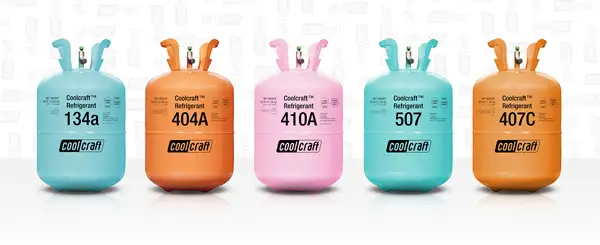Refrigerant leak detector — ever heard of it? It’s a gadget you don’t know you need until it’s too late. Let’s dive in and get you up to speed.
Table of Contents
Definition of a Refrigerant Leak Detector
So, what’s a refrigerant leak detector? It’s a handy device used to spot refrigerant leaks in air conditioning systems, refrigerators, or any system that uses refrigerants. Kind of like a nose for your cooling systems, if you will.
Importance of Refrigerant Leak Detection
Why should you care? Simple: refrigerant leaks can lead to inefficient cooling, higher energy costs, and even damage to your system. Not to mention, some refrigerants are harmful to the environment. Yup, it’s a big deal!
Common Signs of Refrigerant Leaks
How do you know if you have a leak? Watch out for a rise in energy bills, inadequate cooling, or even a hissing noise from your system. Recognizing these signs early could save you a lot of headaches — and cash!

Types of Refrigerant Leak Detectors
Electronic Refrigerant Leak Detector
How Electronic Refrigerant Leak Detectors Work
These gadgets work by sensing changes in the concentration of refrigerant gases in the air. It’s like a smoke detector, but for refrigerant leaks!
To read more in-depth articles, click here: Articles on Refrigerants: The Ultimate Guide to Understanding Them
Pros and Cons of Electronic Refrigerant Leak Detectors
They’re quick, accurate, and can detect even the smallest leaks. The downside? They can be a bit pricey, and some models might give false alarms if not used properly.
Refrigerant Sniffer
How a Refrigerant Sniffer Works
Like a bloodhound on a trail, a refrigerant sniffer “sniffs out” refrigerant gases in the air. It beeps or lights up when it senses a change in concentration.
Pros and Cons of Refrigerant Sniffer
These are usually more affordable and easy to use. But, they might not be as sensitive as electronic detectors, and might miss smaller leaks.
Other Types of Refrigerant Leak Detectors
Ultrasonic Leak Detectors
Ever heard a bat’s echolocation? Ultrasonic detectors work similarly, detecting the high-frequency sounds made by leaking gases. Cool, right?
UV Dye Leak Detectors
These use a special dye that fluoresces under UV light to show where leaks are. Like a neon sign pointing out the problem!
Infrared Leak Detectors
These use infrared technology to spot changes in the concentration of refrigerant gases. It’s like having thermal goggles for your AC system!
Choosing the Best Refrigerant Leak Detector
Factors to Consider When Choosing a Refrigerant Leak Detector
Sensitivity
How small a leak can it detect? The more sensitive, the better.
Durability and Build Quality
Is it well-made? Will it last? No one wants a tool that falls apart after a few uses.
Battery Life and Power Options
How long does it last on a charge? Can it use both batteries and AC power? Options are always a good thing!
Cost
Does it fit your budget? Remember, a higher price doesn’t always mean better quality.
Best Refrigerant Leak Detection Method
Using Electronic Refrigerant Leak Detectors
Just point and go. These detectors do most of the work for you, making them great for beginners and pros alike.
Using Refrigerant Sniffers
Like using a metal detector at the beach, just sweep it around the area and listen for the beep!
Comparing Other Methods
Ultrasonic Leak Detection
These are great for noisy environments, but might be overkill for home use.
UV Dye Leak Detection
It’s like playing detective, but can be messy and time-consuming.
Infrared Leak Detection
High-tech and highly accurate, but they can be pricey.
Choosing the Best Method for Your Needs
Consider your situation. Is it a one-time check or routine maintenance? Are you tech-savvy or prefer simplicity? There’s no one-size-fits-all answer here.
Proper Use and Maintenance of Refrigerant Leak Detectors
Using a Refrigerant Leak Detector Safely
Always follow the manufacturer’s instructions. Don’t forget to use protective gear, and ensure good ventilation when testing.
Cleaning and Maintaining Your Detector
Keep it clean and stored properly. Regular maintenance can extend its life and keep it performing at its best.
When to Replace Your Detector
Does it act up or give inconsistent readings? It might be time for a replacement.
Conclusion
Importance of Effective Refrigerant Leak Detection
A good refrigerant leak detector is a small investment that could save you big in the long run. Don’t wait until it’s too late!
Recap of the Best Refrigerant Leak Detectors and Methods
From electronic detectors to sniffers, there’s a tool for every need and budget. It’s all about finding what works best for you.
Final Recommendations
Start with understanding your needs, then do your research. And remember: a well-maintained detector is a happy detector!